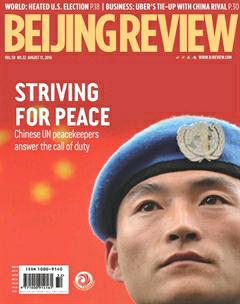Concerns About Security in Rio
2016-09-12
Concerns About Security in Rio
Beijing Youth Daily August 1
Complaints from the Chinese Olympic delegation about security problems in Rio de Janeiro, the host city for this year’s Summer Olympics, have become a hot topic on social media. Shi Dongpeng, a Chinese hurdler, has recounted on his microblog the experience of having a piece of luggage stolen upon arrival at his hotel in Rio. Four other members of the Chinese delegation experienced the even greater misfortune of having their passports and all of their luggage taken.
Poor security in Rio will not only cause Olympic participants inconvenience and financial loss, but will also seriously damage Rio’s and even Brazil’s international image. The ever-widening wealth gap in Brazil has contributed to social instability. In particular, the constantly expanding slums and increasing number of people residing in such locations have added to social unrest.
The International Olympic Committee (IOC) has done nothing wrong in choosing Rio as the host city for the Olympics. The decision indicates the IOC’s recognition of Brazil’s achievements. However, the committee needs to do more to push Brazil to solve its security problems. Even if they cannot change the security situation in the city in the short term, they should at least remind athletes not to go out alone and not to wear expensive accessories to prevent any more robberies and thefts targeting athletes.
The present security situation in Rio deserves the attention of the local government as well as the IOC. Only through the concerted efforts of both can Rio’s security be improved during the games.
ÜHEROIC AIRCRAFT CARRIER PILOT
“It is no exaggeration to say that the sea era is giving way to the land era.”
Luo Shuquan, Chairman of the Board of the Chongqing Western Logistics Park in southwest China’s Chongqing Municipality, commenting on the shift of foreign trade from coastal areas to inland cities in a recent interview
“We will encourage public and private entities to set up breastfeeding rooms in workplaces and public venues, to address the shortage of such facilities.”
Wang Guoqiang, deputy head of the National Health and Family Planning Commission at a World Breastfeeding Week event in Beijing on August 1
